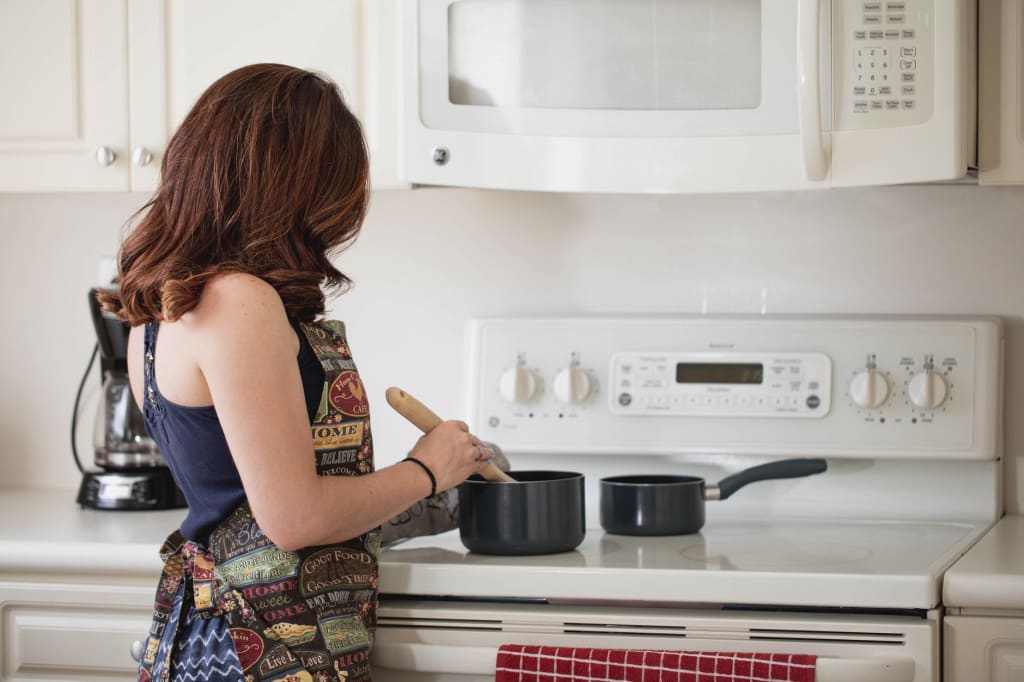Top 5 Food Safety Tips To Keep Your Family Safe
Discover food safety tips to avoid contamination and lead a healthy life. Follow these simple tips and ensure the safety of yourself and your family.

Eating safe food is vital for good health. If the food isn’t safe, many foodborne diseases can occur, some of which can put your life at stake. Food is a very sensitive thing, and it can be contaminated easily if proper food handling practices aren’t followed. No matter you’re dining out or eating food at your home, you don’t want to become sick after taking the food. So you must ensure the food is safe to consume and you need to know the safe food handling practices.
We’ve come up with the top 5 food safety tips for you to help you prevent food contamination and keep your family safe. Now let’s move forward.
Top 5 Food Safety Tips to Practice at Home
These simple but effective tips would help you reduce the risk of food contamination and prepare safe food for your family.
Wash your hands before touching the food
Food safety begins at the personal level. Maintaining personal hygiene makes the job easy for you to ensure food hygiene. Washing hands is a good personal hygiene practice that you must maintain during food handling. Your hands contain millions of bacteria and other microscopic germs. If you don’t wash your hands, these contaminants will get mixed with the food and make it unsafe. You can prevent most of the foodborne diseases by just washing your hands before touching the food.
So, wash your hands thoroughly with soap or hand wash and dry them before handling food. Encourage your children to do the same. However, make sure the water is fresh which you’ll use to wash your hands.
Sanitize the cooking appliances
It’s essential to sanitize the cooking appliances after using them in food preparation and serving to prevent the propagation of bacteria and fungus. Especially, don’t forget to sanitize the knives, chopping board, forks, etc after cutting and preparing raw foods such as meat, fishes, poultry, etc. Raw foods contain a lot of contaminants and these can spread to other foods if the same materials are used without sanitizing them.
So, you must sanitize your kitchen materials properly. Luckily you don’t need fancy equipment to do this. A simple dish-soap can easily kill the bacteria and other germs. So, wash your everything thoroughly with dish-soap and store them in a safe place free from insects. However, don’t forget to wash them again in running tap water before using them again.
Avoid overpacking your refrigerator
It’s a bad practice to overpack refrigerators with foods and materials. It reduces the food storing efficiency of refrigerators. Because proper air circulation is required to keep the food cool and fresh which gets disrupted when you overpack your refrigerator with stockpiled foods and groceries. So, don’t do this if you want to keep your foods fresh for longer times. It’s one of the basic food hygiene rules to avoid overpacking your refrigerator
Furthermore, make sure the temperature is below 4˚ C inside the fridge. You can use a thermometer to check the temperature as sometimes the indicator may give a wrong reading. Always store raw foods at the bottom shelf of your fridge to avoid seepage on other foods. Otherwise, seepage from raw foods will contaminate other foods.
Cook food at the right temperature
Cooking food at the right temperature is important for food safety. You must know the right temperature for specific foods. Undercooking makes the food, especially meat, fish, and poultry unsafe as it wouldn’t kill all the contaminants. On the other hand, overcooking ruins the taste of the food. Both are unhealthy and unsafe to consume. So, cook your foods at a safe temperature.
Use a thermometer to gauge the internal temperature of the food while cooking so that you can ensure you’re cooking at the right temperature and adjust the heat as it requires. Never serve the hot food immediately after cooking. Let it rest for a few minutes before serving to your family.
Remember to use oven-safe containers and for heating foods in the oven for heating cooked foods.
Keep your kitchen neat and clean
Last but not least, cleanliness is a must for food safety. A dirty kitchen is responsible a lot for the contamination of foods. So, your kitchen needs to be kept neat and clean always. A dirty kitchen not only generates contaminants but also attracts insects and rodents which poses a great risk to your food safety. So, clean your kitchen every day. Wash the floors and surfaces with a cleaner and water. Ensure no waste is piling up inside the kitchen. Use different bins for disposal of different kinds of kitchen waste and keep the bins out of the kitchen.
Closing Notes
Now that you read this article, you would be able to ensure food safety at home and keep your family safe. However, if you’re more conscious about what your family is eating, then you may consider taking training on food hygiene and safety.
About the Creator
Shafiur Rahman
Shafiur is a professional blogger and e-learning specialist. you can follow me on https://srahmanshafi.com
Enjoyed the story? Support the Creator.
Subscribe for free to receive all their stories in your feed. You could also pledge your support or give them a one-off tip, letting them know you appreciate their work.






Comments
There are no comments for this story
Be the first to respond and start the conversation.